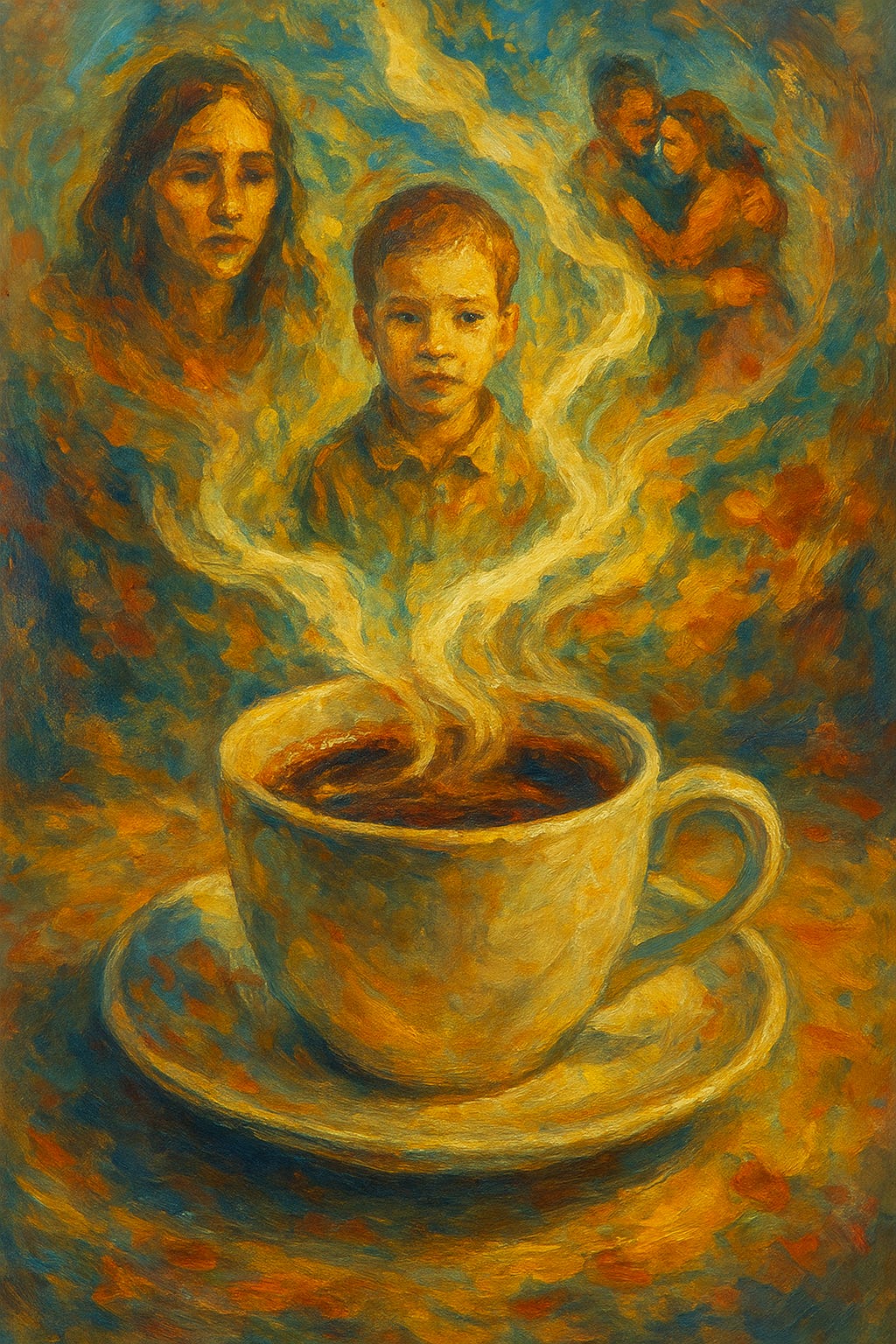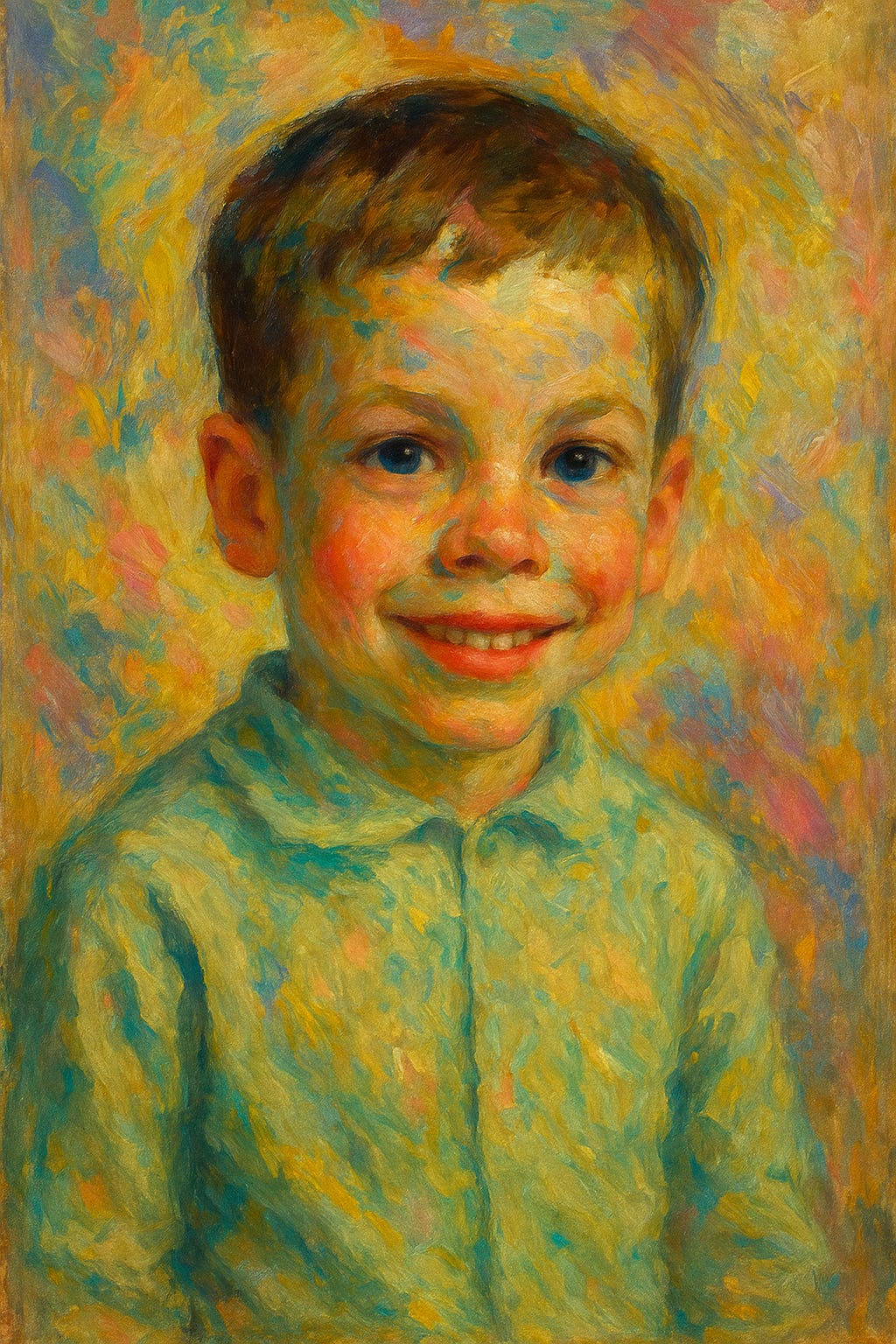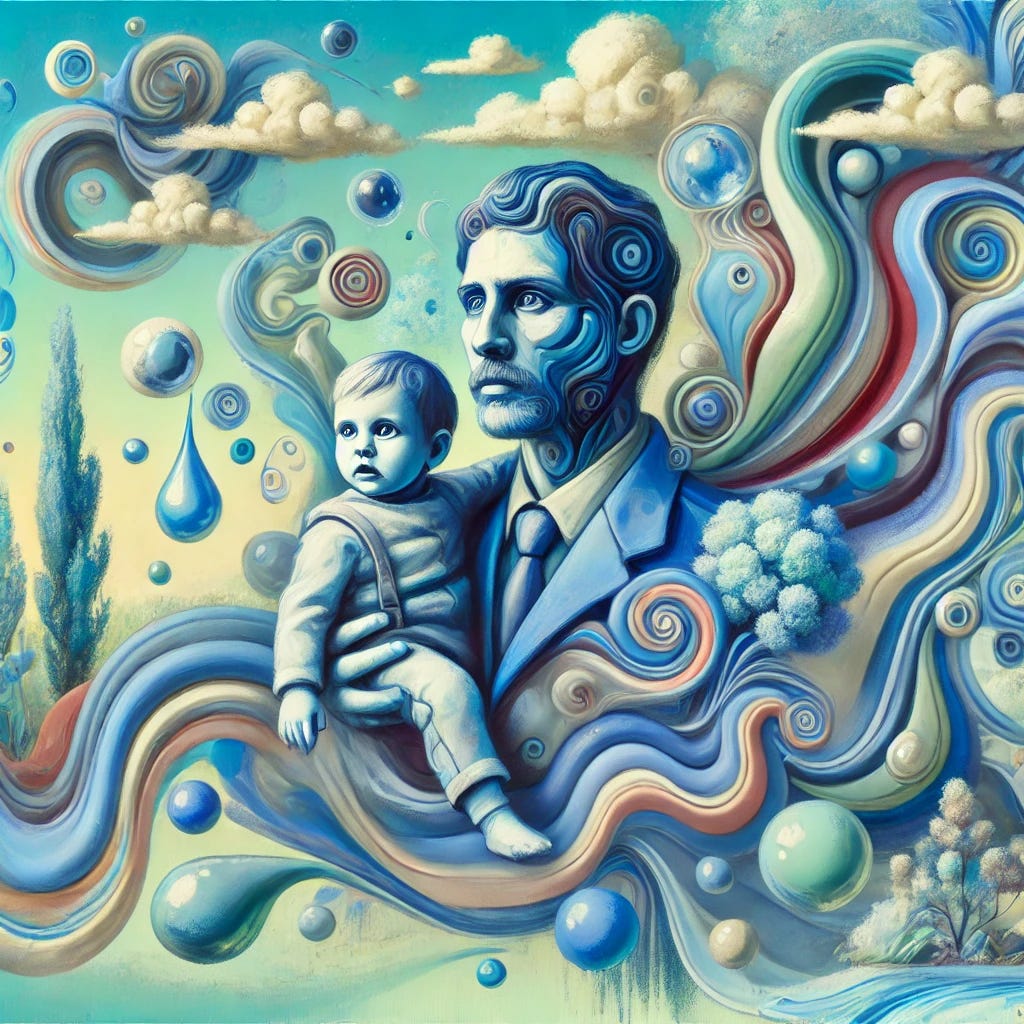Blood Is Not a Blueprint
Adoption, identity, and the polite lie that genes outweigh devotion.
If you believe in the importance of free speech, subscribe to support uncensored, fearless writing—the more people who pay, the more time I can devote to this. Free speech matters. I am a university professor who was suspended due to a free speech issue, so I am not speaking from the bleachers.
Please subscribe to receive at least three pieces /essays per week with open comments. It’s $6 per month, less than USD 4. Everyone says, "Hey, it’s just a cup of coffee," but please choose my coffee when you come to the Substack counter. Cheers.
I cannot get over the image of Joni Mitchell and her long-lost daughter on the cover of Maclean’s. The photo suggests a glorious reunification, the return of the prodigal adopted child, and it reminds me of my adoption.
But to me, the identity of my birth mother isn't much more than a technicality -- my real parents were the folks in the room across the hall. Technically, the woman I called mum didn't give birth to me that day in 1974, but my memory doesn't kick in till age five anyway.
I remember standing on the street in 1969, watching the neighbours move in. I don’t know why I was standing there alone. Memory is more like a painting than a photograph, and I’m not sure my recollections are true.
If my parents had never told me I was adopted, I would never have known - perhaps a few questions about why I was shorter than Dad. That is -- until the other woman showed up.
My dad said he’d given her a ride home from a university meeting because her car wouldn’t start, or she'd taken the bus, and he just started flexing - although my dad would never use the word 'flexing' - about the twins he and my mum had just adopted.
His passenger was the woman who had given up these twins; she knew it but somehow managed to keep her mouth shut, a genetic predisposition I don’t seem to have inherited.
But today, my blood mother was at the other end of the phone.
"Can we get together?"
I kept thinking about the mom who had put in her 21 years of service, who had changed my diapers, who had picked me up when I fell down a flight of stairs, who had practically punched the principal in Grade 4 who thought he could give me the strap for throwing a mudball, who had harangued me into recognising the virtue of making one's bed, and who had sacrificed her career to raise me, my twin, and my sister.
And who I'd watch take her last breath, succumbing to cancer nine months earlier.
Still, I said yes to my birth mother’s invitation, and I was at her door, a small white military house in Winnipeg. She was on the phone and looked at me as she continued talking, complaining about her long-distance charges. She had curly black hair and teeth that reminded me of mine before the years of wearing a night brace and those cruel orthodontic elastics.
A surly poodle-cross with its hair falling above its eyes walked toward me and nipped me on the ankle. I kicked it, and it ran down the stairs. As I waited for her to get off the phone, I thought - this woman had given birth to me. Why wasn't I feeling anything?
We spent the afternoon talking about her dog's leukaemia and my family tree—my "blood family" tree, to be exact. When I asked her about the circumstances of my adoption, she lost eye contact and stammered about the man she was babysitting and how one thing led to another. At the end of the quiet affair, she left for Winnipeg. She wasn’t married, couldn’t afford to raise two babies, and was soon at the adoption agency.
Part of me wanted to know more about this family tree, but it all seemed somehow disloyal. Besides, you can't have two different lines of relatives. And my mother wasn't here to defend herself.
"So what happened to my blood dad?
"He doesn’t keep in touch and denies paternity," she said.
“Still?”
“Yes”
She had a cross on the wall, and I thought the risk of joking about my immaculate birth was too much.
I've known I was adopted as long as I can remember, and nobody had ever said much, but in the months that followed, many now referred to this mother as "your mom.”
It was insulting. Even my biological mother, or Julie as she had asked me to call her, seemed to understand.
So when the “real mum” phrasing arose, I would interject - "birth mum,"
Others celebrated with delight the discovery of my "real mum." Was my mum, who raised me, a fake? Was adoption second-rate compared to a direct genetic link? Was there any cause for celebration?
Yes, this woman had borne the pain of childbirth, borne the stigma of illegitimacy, and had the moral strength to call the adoption agency. For this, I am grateful. But there is no issue with my "real mum." That title was earned in those 24 years.
Thus, I wondered why they put Joni Mitchell and her daughter on the magazine cover. Where was the woman who raised the daughter? How could they relegate her to the back pages?
Over thirty years after meeting my blood mother, I flew out to say goodbye to Julie. Her daughter and my half-sister had said she was not well. And so I just booked a room at a hotel ten minutes from the hospital and walked in unannounced. It was in Edmonton, cold, with the wind bitter; I had forgotten my gloves and pushed my hands deep into my pockets. It brought me back to the night my mum, my real mum who raised me, had died; I remembered a similar lonely walk in the cold Minnesota winter.
But this night, Julie was chipper, treating me more like the neighbour stopping by for a coffee than the long-lost son coming to say final goodbyes. No needless melodrama.
Julie lasted three months longer than the doctor predicted, and her daughter told me of her death by text. As agreed upon, I didn’t go to the funeral; nobody would know who I was, there were echos of being the bastard child, and I knew I wasn’t strong enough to explain a strange story of how my dear father, also only gone a matter of months, had been brought together with Julie due to the serendipitous factors of a dead battery and a cold Winnipeg winter.
But I was grateful to this woman. While I held firm to my semantic obstinance about the title of mother, Julie had never been a threat or intended to replace anyone. Julie was a young, frightened woman looking to do her best for two tiny babies growing within her.
She had done well, and I will never forget my Julie.
If you found value in this article and wish to support my ongoing work, especially during my 18-month suspension, please consider leaving a tip. Your support helps me continue producing uncensored content on critical issues
If you found value in this article and wish to support my ongoing work, especially during my 18-month suspension, please consider leaving a tip. Your support helps me continue producing uncensored content on critical issues.








Salutations from another adoptee.
I finally found relatives of my birth mother (who passed before I could meet her) and a few of them refer to her as my 'real mom.'
No. Wish we had met, but my Mom was my real mom.
Meaningful.